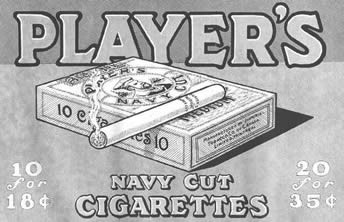The academic textbooks talk about capital markets, not share markets, not stock markets, but capital markets.
London, New York, Tokyo and Hong Kong are huge watering holes where industry and commerce gather to gorge themselves on new forms of capital - cash to you and I.
They do so by issuing shares, or raising debt finance from the market.
And it is not just companies that tap the markets for cash - governments do it too.
They issue debt - known in the UK as gilts - to bankroll spending on projects such as new schools, hospitals and roads.
Hugo Dixon, the author of the Penguin Guide to Finance refers to the capital markets as 'buyers, sellers and a colourful cast of middlemen'.
So let's go behind the scenes. In this section we will look at:
Buyers - those with ready cash looking for investment opportunities. More commonly known as investors.
They can come in all manner and form - everything from the giant life assurance companies that invest our savings for retirement, right down to the individual stock market prospectors.
 |
Sellers - they are the people who need or want cash. When I say people, it's doubtful that one individual will come to the market and borrow funds.
It is much more likely to be a huge multi-national company, or a government.
Dixon in his Penguin Guide to Finance reckons there are five different kind of middleman.
The Fund Manager who gathers cash from individuals to create large pools of savings that can be more efficiently invested.
Corporate financiers who help companies find the cheapest forms of capital, or the most efficient for their purpose.
Salesmen who are used by banks to promote stock to potential investors.
Traders that are the people who buy and sell shares for clients and on their own behalf.
As you may have already gathered, there are different types, or classes of capital.
But they can be broadly categorised as either debt or equity. Debt is borrowing.
There is a myriad of different ways to borrow from the market. But all debt must at some point be repaid.
Equity is different. Companies issue shares to raise cash.
Investors are buying a stake in the firm.
As such they shouldn't expect to see their investment repaid. If the company is liquidated, the taxman takes his chunk first, followed by the debt holders.
If there's anything left over, then it is returned to shareholders.
It is the equity market we are interested in.
As a beginner, most of the shares you will buy and sell will be traded on the London Stock Exchange.
Founded in the coffee houses of the City of London in the late 17th Century, the LSE has evolved into Europe's most important share market and one of the largest in the world.
There are around 3,000 companies listed on the LSE worth in excess £3,500bn.
A total of 1,800 firms are quoted on what is called the Main Market, while 1,100 are listed on the Alternative Investment Market, or Aim, which was set up a decade ago for young expanding firms.
At the end of the evening news you will hear the presenter talk about the Footsie ending the day up, down or unchanged.
When talking about the Footsie, the news reader is referring to the FTSE 100, which tracks the performance of shares in the LSE's biggest 100 companies.
A company called FTSE International - owned by the Financial Times and the London Stock Exchange - has put together a series of other indexes that help fund managers, pension funds, banks and brokers track share price movements.
We have already said the FTSE 100 is the most widely quoted index, or the Financial Times Stock Exchange 100 to give its proper name. Its value changes the instant one of its constituent share prices change.
The index for all companies on the Stock Exchange is the FTSE Actuaries All Share (also known as just the All Share).
The FT Ordinary Share Index is made up of the top 30 companies. Below the FTSE 100 is the FTSE 250.
Also known as the mid-cap index, it comprises of the next 250 biggest companies in the stock market.
Below the 250 there is the FTSE Small Cap.
It is made up of the 1,500 or so small companies.
Other indexes include:
Life for the FTSE 100 started in 1984 and its value was 1,000.
Don't ask why they decided to value it at 1,000.
They just did. Probably thought it was a nice round number.
As we already know, every time the shares of a FTSE 100 company move, the index moves.
So given it is now worth more than 6,000, the movement in the past 22 years has been upward - albeit with a few setbacks along the way.
Size Matters. Not all FTSE 100 companies are equal.
And neither is their impact on the index. Size buys influence. The larger the company, the more weight it is given in the FTSE 100.
Oil giant BP is worth more than £130bn, accounting for almost 10pc of the FTSE 100's value.
So it is not surprising that it exerts more influence than British Airways, worth just over £4bn.
A 1pc change in BP's share price leads to 5.4 point change in the FTSE 100.
A similar movement in BA, would barely register.
The content of this site is copyright 2016 Financial Spread Betting Ltd. Please contact us if you wish to reproduce any of it.